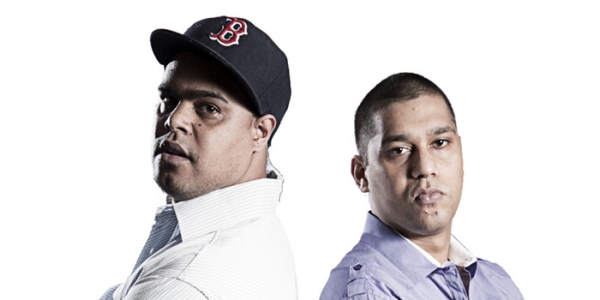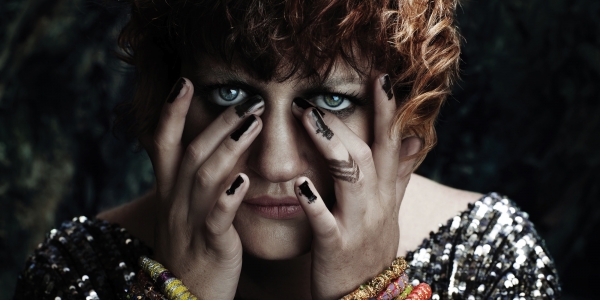Experimenting with different genres was a chief focus for the album, Tjimba says. “We make the beats straight out, because I’ve played all sorts of music; guitar, keyboards. Stylistically, my speciality? I can do a lot of stuff with guitar. I play a lot of Led Zeppelin, metal stuff, all the old school jazz, Larry Carlton and all those guys. And I took that in [to the studio].” One of the stand-out tracks from the album, Black Deaths In Custody, contains some pretty impressive and extravagant scratching, which came about from producer Momo’s input. “He got a couple of people in to work on it, like a flute player, and one of his DJs to do the scratching,” he beams. “I was just like ‘Oh-h-h, wicked!’”
The album has a definite arc to it: beginning with Black Deaths and Standing Strong, it moves from this specific kind of social commentary to some beautiful raps about kinship through an indigenous lens, such as on Family Love and Childhood Days. It’s these tunes which are particularly compelling, because they show a real insight into the guys’ formative years and what it’s been like for them moving between, and attempting to enmesh, two facets of their lives in Australia. When the subject of the anthemic Standing Strong clip comes up, Tjimba’s usually totally peaceful manner becomes animated. It’s a brilliant video, with several young kids rapping and gesticulating along with the Warriors. “Yeah, that’s all our little family! That’s D-Boy’s little sis, and step-brothers,” he says happily. “That’s what we thought with these clips; the album is sort of family orientated. So we thought we’d get our mob in. Especially when we went to Alice [Springs, where the guys are originally from], we went straight to all our mob. Yeah, they’re loving it,” he continues. “and that’s the special thing! It put a smile on your face.”
Earlier this year on Thursday January 26, the Warriors played a number of gigs for Survival Day. “That day’s really busy for us; we did a lot,” Tjimba says. “My father, he’s a guitarist, and I do a lot of stuff for [his band] as well.” Tjimba’s father Selwyn Burns (Mixed Relations, Blackfire) encouraged the boys in their youth to play instruments live, and also accompany him on stage. “I love the band stuff and working with other people; helping them out,” he says. Mentioning performing with his uncle, he starts a deep chuckle: “What’s so funny about him is, he forgets his lyrics and he forgets the music, so we come in and we’re like ‘Here, here it is!’ You’ve got to help the old fellas out too, ‘cause we’re family. Building that empire, you know.”
He admits he misses playing with a whole ensemble when he can’t do so, but still plays as many instruments live as possible. “We’ll have a DJ set with beats and stuff, but then I’ve got a band too. So I’ve got my brother with the bass, and a horn section with drums, then a drum machine that goes with the drums and sounds like the beats, and a guitar, and harmonies. Yeah, I got everything,” he smiles.
The overriding message which the Warriors try to impart to their young audience is to be resilient when obstacles are put in their way, and that dreams are paramount. “It may be complicated but just grab it: grab the opportunity,” Tjimba explains. There’s a sample in track six of the album, Hold On, of a mature male’s voice declaring “We don’t try and explain it: we live our spirituality; we live our Dreaming.” This is what’s so special about Australia’s indigenous stories of the Ancestral Beings, and that resounds in the message the Warriors want to communicate. Because the ancestors did not disappear at the end of the Dreaming but remained in sacred sites, the Dreaming is never-ending, with the past and the present always connected. Yung Warriors hope to help their fans see that you can progress forward through will and determination and by being true to your roots: it’s a circular flow. The two young men have made an incredible start and the rest of 2012 could propel them into places from which their ideas can hopefully reach an even greater number of young people.
BY ZOË RADAS

